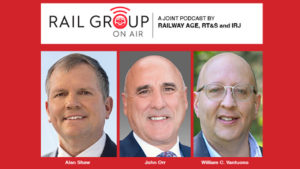BNSF will back quiet zones in Galesburg, Ill.
Written by jroodBNSF has agreed to fund a significant amount of the cost of closing eight railroad crossings in Galesburg, Ill., to develop quiet zones, according to city engineer Wayne Carl, The Register-Mail reports.
The city has been
negotiating with BNSF for some time to try and come to an arrangement to cover
the cost of a project that would have benefits for both groups.
Carl said
BNSF agreed in October to cover a large part of the project costs. A funding
commitment also has been secured from the Illinois Commerce Commission.
Together,
BNSF and the ICC have agreed to fund 56 percent of the estimated $2.5-million
project, according to Carl. It is understood that BNSF has agreed to fund a
bigger slice of the 56 percent than the ICC.
The establishment of quiet
zones would reduce money BNSF spends maintaining railroad crossings.
A special City Council
meeting will be at 6 p.m. Monday at the Galesburg Public Library to discuss the
proposed quiet zones. Representatives from BNSF, the ICC and city officials
will attend the meeting, which is open to the public.
Carl said the city
plans to focus on the Chillicothe subdivision first, where six railroad
crossings could be closed. The six crossings do not include West Main Street or
North Seminary Street, where overpasses are to be developed with state funds. A
third grade separation is planned at East Main Street.
Among the crossings that
could be closed are North West Street, North Cherry Street, North Kellogg
Street, North Pearl Street and Whitesboro Street. Closing the crossings would
mean train drivers would not have to sound their whistles, reducing noise
pollution.
Carl said one purpose of the
Nov. 23 meeting is for city officials to get direction from the City Council on
which crossings aldermen think should be closed. Input from the public also will
be welcomed. He estimated that the earliest a Chillicothe subdivision quiet
zone could be established would be in the summer of 2012.
The city has been planning
to establish railroad quiet zones for some time. In 1999, the Federal Railroad
Administration announced it was creating new regulations requiring trains to
sound their whistles every time they approached an intersection. The
regulations where designed to protect the public, but also led to increased
noise. In 2004, the City Council hired consultants to investigate establishing
quiet zones in Galesburg.





